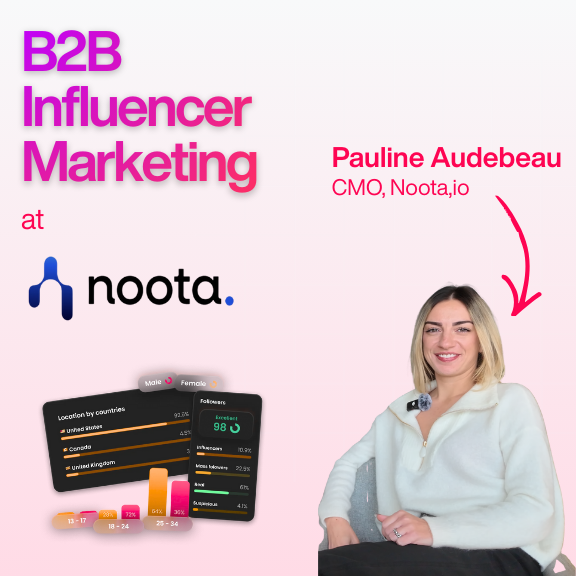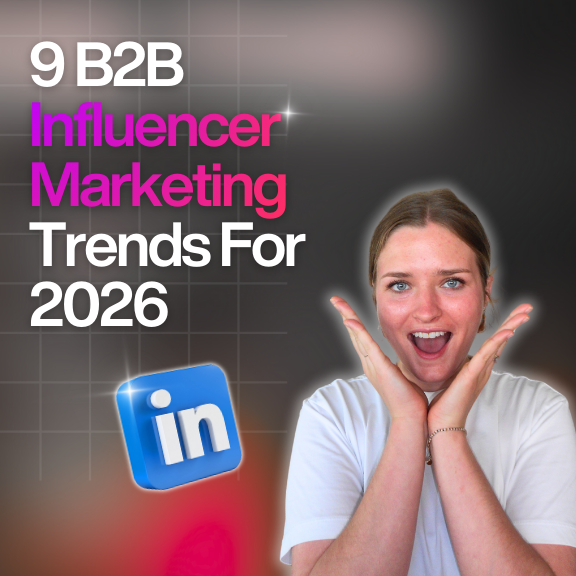How to Choose the Right Influencer Marketing Platform for Your Brand
Choosing the right influencer marketing platform is essential for running successful campaigns and reaching your brand’s target audience. In this guide, we explore top platforms, compare key features, pricing, and benefits, and help you select the best influencer marketing solution to meet your brand goals.



Sarthak Ahuja is a marketing enthusiast currently contributing to digital marketing strategies at Favikon. An alumnus of ESCP Paris with over 2 years of professional experience, he has held multiple marketing roles across industries. Sarthak's work has been published in journals and websites. He loves to read and write about topics concerning sustainability, business, and marketing. You can find him on LinkedIn and Instagram.
Check Brand Deals
How to Choose the Right Influencer Marketing Platform for Your Brand
The influencer marketing industry has evolved from a $1.7 billion market in 2016 to an estimated $21.1 billion in 2023, making platform selection more critical than ever. With over 300 influencer marketing platforms available today, choosing the right one can make or break your campaign success. This comprehensive guide will walk you through the essential factors to consider when selecting an influencer marketing platform that aligns with your brand's goals and budget.


Understanding Your Campaign Objectives
Before diving into platform features, you need to clearly define what you want to achieve. According to Influencity's research, brands that establish clear objectives before platform selection see 73% better ROI compared to those who don't.
Primary Campaign Goals to Consider
Brand Awareness Campaigns require platforms with extensive reach metrics and demographic filtering capabilities. If your goal is to increase visibility, prioritize platforms that offer comprehensive audience analytics and broad influencer networks across multiple social channels.
Sales-Driven Campaigns need platforms with robust e-commerce integrations and conversion tracking. These campaigns benefit from features like affiliate link management, product seeding automation, and direct sales attribution.
Community Building focuses on long-term relationships with creators who align with your brand values. Look for platforms that emphasize creator relationship management (CRM) features and facilitate ongoing partnerships.
As marketing expert Sarah Johnson from Coherent Market Insights notes: "The most successful brands are those that match their platform choice to their specific campaign objectives rather than choosing based on popularity or price alone."
Evaluating Platform Features and Capabilities
Influencer Discovery and Search Functionality

The foundation of any successful influencer campaign lies in finding the right creators. Advanced search capabilities should include:
Demographic Filtering: Age, location, gender, and language preferences of the influencer's audience
Niche Specialization: Industry-specific categories and content themes
Engagement Metrics: Beyond follower count, look for platforms that analyze engagement rates, comment quality, and audience authenticity
Content Analysis: AI-powered tools that assess content quality and brand alignment
According to Sprout Social's 2024 report, platforms with advanced AI-driven discovery tools help brands reduce influencer vetting time by up to 60%.
Campaign Management and Workflow Automation
Efficient campaign management features can significantly impact your team's productivity and campaign success rates.
Content Approval Workflows streamline the review process, ensuring brand compliance while maintaining creator autonomy. Look for platforms that offer customizable approval stages and automated notifications.
Communication Tools should facilitate seamless interaction between brands and creators. Integrated messaging systems, brief sharing, and feedback mechanisms are essential for maintaining clear communication throughout campaigns.
Product Seeding and Gifting automation is crucial for e-commerce brands. Platforms like Grin and Upfluence excel in this area, offering direct integration with inventory management systems.
Analytics and Performance Tracking

Data-driven decision making is paramount in influencer marketing. Your chosen platform should provide comprehensive analytics that go beyond vanity metrics.
Real-Time Performance Monitoring allows you to track campaign progress and make adjustments on the fly. Look for platforms that offer live dashboards with key performance indicators relevant to your goals.
ROI Calculation Tools should track not just engagement but actual business impact. This includes sales attribution, website traffic, and brand mention sentiment analysis.
Competitive Analysis Features help you understand industry benchmarks and identify opportunities for improvement.
Industry analyst Mark Thompson from KPI Media emphasizes: "Brands that leverage comprehensive analytics see 4x better campaign optimization compared to those relying on basic metrics alone."
Platform Integration and Technical Considerations
E-commerce Platform Compatibility
For brands selling products online, seamless integration with your existing e-commerce infrastructure is non-negotiable. The most successful platforms offer native integrations with major e-commerce systems.
Shopify Integration is particularly important, given that Shopify powers over 1.7 million businesses worldwide. Platforms like Grin, Upfluence, and Aspire offer robust Shopify integrations that enable automatic product syncing, inventory management, and sales tracking.
Multi-Channel Compatibility ensures your influencer campaigns can span across various social media platforms while maintaining centralized management and reporting.
CRM and Marketing Stack Integration
Your influencer marketing platform shouldn't exist in isolation. Look for solutions that integrate with your existing customer relationship management (CRM) systems, email marketing tools, and analytics platforms.
API Availability allows for custom integrations and data synchronization across your marketing technology stack. This is particularly important for enterprise-level brands with complex marketing ecosystems.
Budget Considerations and Pricing Models
Understanding different pricing structures helps you make an informed decision that aligns with your budget and expected usage patterns.
Common Pricing Models
Subscription-Based Pricing typically ranges from $500 to $5,000+ per month, depending on features and user limits. This model works well for brands with consistent influencer marketing activities.
Pay-Per-Campaign pricing can be more cost-effective for brands with sporadic influencer marketing needs. However, it may limit access to advanced features and historical data.
Enterprise Custom Pricing is common for large brands requiring extensive customization, dedicated support, and advanced analytics capabilities.
According to AdMetrics' analysis, brands typically see the best value when their monthly platform cost represents 10-15% of their total influencer marketing budget.
Top Platform Recommendations by Use Case

For E-commerce and DTC Brands: Grin
Grin stands out for its comprehensive e-commerce integrations and creator relationship management features. The platform excels in product seeding automation and sales attribution, making it ideal for direct-to-consumer brands.
Key Strengths: Shopify integration, automated gifting workflows, comprehensive creator CRM
Best For: Brands like SKIMS, Allbirds, and MVMT that prioritize long-term creator relationships and direct sales attribution
For Enterprise-Level Analytics: Brandwatch
Brandwatch offers AI-driven sentiment analysis and comprehensive social listening capabilities alongside influencer discovery and management features.
Key Strengths: Advanced analytics, sentiment tracking, multi-platform campaign management
Best For: Large brands requiring sophisticated data analysis and brand reputation monitoring
For Growing Brands: Upfluence
Upfluence provides a balanced approach with strong search capabilities and reasonable pricing for mid-market brands.
Key Strengths: Robust influencer search, good e-commerce integrations, scalable pricing
Best For: Brands transitioning from manual influencer outreach to platform-based management
Making Your Decision: A Strategic Approach
Step 1: Audit Your Current Processes
Evaluate your existing influencer marketing workflows to identify pain points and inefficiencies. This assessment will help you prioritize platform features that address your specific challenges.
Step 2: Define Success Metrics
Establish clear KPIs that align with your business objectives. Whether it's engagement rates, conversion rates, or brand sentiment scores, having defined metrics will guide your platform evaluation process.
Step 3: Request Demos and Trials
Most reputable platforms offer free trials or demo sessions. Take advantage of these opportunities to test the platform's usability and feature set with your actual use cases.
Step 4: Consider Scalability
Choose a platform that can grow with your brand. Consider factors like user limits, campaign volume restrictions, and upgrade paths when making your decision.
Leveraging Favikon for Influencer Discovery

While evaluating different platforms, consider how Favikon can complement your influencer marketing strategy. Favikon's comprehensive creator database and advanced filtering capabilities make it an excellent tool for initial influencer discovery and research. You can use Favikon to identify potential creators, analyze their audience demographics, and assess their content quality before moving to campaign management on your chosen platform.

Favikon's strength lies in its extensive creator profiles and real-time performance data, making it particularly valuable for brands that want to conduct thorough influencer research before committing to partnerships.
Key Takeaways for Platform Selection
The right influencer marketing platform should align with your specific business objectives, integrate seamlessly with your existing technology stack, and provide the analytics depth necessary for data-driven optimization. Remember that the most expensive platform isn't necessarily the best choice – focus on features that directly support your campaign goals and provide measurable value.
Start with a clear understanding of your objectives, evaluate platforms based on your specific use cases, and don't hesitate to leverage multiple tools if it serves your strategy better. The influencer marketing landscape continues to evolve, and the platforms that succeed are those that adapt to changing brand needs while maintaining ease of use and reliable performance.
Also See 👀
🏆 HOW TO REACH OUT TO HUNDREDS OF INFLUENCERS AT ONCE
🏆 HOW TO FIND NEW BRAND DEALS FOR INFLUENCERS
HOW DOES FAVIKON RANK INFLUENCERS?
Related Articles
See all the articlesResources







